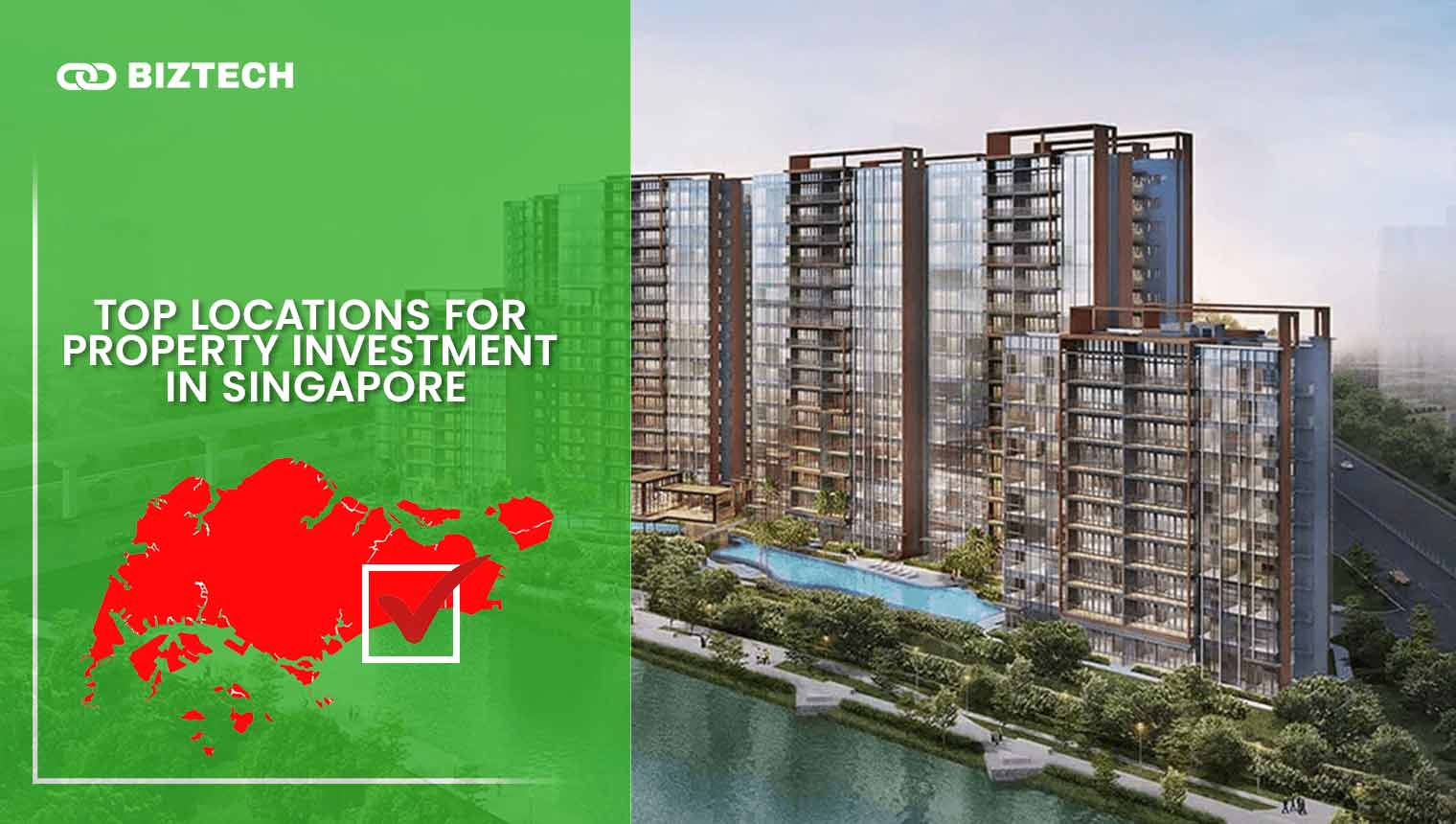Property investments in Singapore have become increasingly complex, with 2025 presenting both opportunities and challenges.
As interest rates fluctuate and government policies evolve, investors must navigate a dynamic market to make informed decisions.
Therefore, to maximise your property investments in Singapore returns, you should understand the current trends, strategic approaches, and best practices, which we will discuss further below. So keep reading!
2025 Market Forecast and Trends
Understanding Singapore’s Real Estate Landscape 2025
Singapore’s property market has long been a focal point for both local and international investors who want to begin their property investments in Singapore.
2025 presents a dynamic landscape shaped by economic indicators, government policies, and global trends.
Key Trends Shaping the Singapore Property Market
Several key trends are influencing the Singapore property market:
Luxury Condominiums:
Luxury condos continue to attract high-net-worth individuals. However, pricing and demand are influenced by global economic conditions and government policies such as Additional Buyer’s Stamp Duty (ABSD).
HDB Flats:
As the backbone of Singapore’s public housing system, HDB flats remain a crucial component of the housing market. Interest rates, government cooling measures, and economic growth impact resale prices and rental yields.
New Launches:
The new launch market is a barometer of investor and buyer sentiment taking into factors such as location, pricing, and amenities that can significantly influence the sales.
Investment Outlook for Singapore Property
Singapore’s property market looks promising in 2025, but it’s essential to be strategic. While the market has shown strength, you’ll need to diversify your investments, research, and plan for the long haul to navigate potential ups and downs.
Monitor economic indicators like GDP growth, unemployment, and interest rates. Government policies, including cooling measures, taxes, and land availability, will also impact your investment.
Also, global trends like economic conditions, political events, and money flowing in and out of the country should be considered.
Impact of Singapore Government Property Policies on Investments
Singapore’s government has implemented several property cooling measures, including the Additional Buyer’s Stamp Duty (ABSD), to stabilise the property market and ensure housing affordability for citizens. This tax is added to the cost of buying a property and depends on factors like your citizenship, how many properties you own, and the type of property you’re buying.
For instance, as of April 2023, Singapore citizens purchasing their second residential property face an ABSD of 20%. Foreigners buying residential property are subject to an even higher rate at 60%.
These strict measures have had a noticeable impact on different parts of the property market. Due to the increased costs, luxury condominiums, for instance, have become less attractive to foreign buyers.
While HDB flats are generally exempt from the ABSD, cooling measures like the Total Debt Servicing Ratio (TDSR) can still affect homeownership. The overall impact of the ABSD and TDSR has been to slow down the private residential property market.
Top Locations for Property Investment in Singapore

Based on the abovementioned factors, there are several areas stand out as promising investment locations:
1. Central Business District (CBD):
The CBD is the economic heart of Singapore, housing multinational corporations and financial institutions. Due to limited land supply, property prices in this area tend to be high. However, strong rental demand from businesses makes commercial property investment attractive.
2. Marina Bay:
Marina Bay is an iconic waterfront development featuring residential, commercial, and leisure options. Its high-end properties appeal to affluent residents and businesses. The Singapore government’s continuous investment in this area ensures promising long-term growth prospects.
3. Outside Central Region (OCR):
The OCR offers more affordable housing options, making it suitable for first-time homebuyers and investors seeking higher yields. Ongoing infrastructure development, such as new MRT lines and town centres, is boosting property values. The OCR also presents diverse investment opportunities in both residential and commercial properties.
4. Rest of Central Region (RCR):
The RCR provides a middle ground between the CBD and OCR, offering mid-tier residential and commercial properties. Established neighbourhoods in this region benefit from mature infrastructure and amenities. Good rental demand makes apartments and condominiums attractive investment options.
Leveraging Infrastructure Development for Investment Success
Singapore’s extensive infrastructure development plans create a significant opportunity for property investments in Singapore.
For example, the Jurong Lake District, a government-led initiative to transform the western region into a business and lifestyle hub, has seen substantial property value growth.
Other notable infrastructure projects include the Thomson-East Coast Line MRT, Cross Island Line MRT, and Paya Lebar Central.
Practical Investment Tips and Risk Management
Understanding Market Cycles
Similar to other markets, the Singapore property market exhibits cyclical trends. Understanding these cycles is crucial for making informed investment decisions. A market upswing is characterised by rising prices, increased demand, and investor optimism.
This is followed by a peak, during which prices reach their highest point before a downturn begins, marked by decreasing prices and cautious investor sentiment. Eventually, the market recovers, prices stabilise, and prices begin to rise again.
By analysing historical data from sources like the Urban Redevelopment Authority (URA) and Singapore Real Estate Exchange (SRX), investors can identify patterns and anticipate market trends.
Timing Your Investment
Timing your property investment is key to maximising returns. While predicting market peaks and troughs is challenging, understanding market cycles can help you make smarter decisions.
One strategy is counter-cyclical investing. In this strategy, you buy property when the market is down so you can acquire assets at lower prices. However, this approach requires a long-term investment outlook.
When the market is booming, rental yields may decrease. Pay attention to properties with higher rental yields to ensure a steady income stream.
Building a Diversified Portfolio
Diversification is key to managing property investment risk. By spreading investments across various property types, locations, and income streams, investors can reduce exposure to market fluctuations.
For example, combining residential options like private and public housing with commercial properties such as offices, retail outlets, or industrial spaces can balance the portfolio.
Additionally, investing in properties across different districts or even countries helps mitigate the impact of localised market downturns, creating a more resilient investment strategy.
Check out other best investment options in Singapore for small and big capital investors
Risk Management Strategies
Property investment in Singapore, like any investment, carries risks. Effective risk management is crucial to protecting your assets.
Start by conducting thorough due diligence on any property you consider. This involves examining its legal, financial, and physical aspects. Don’t hesitate to seek professional help from property agents, lawyers, and financial advisors. Their expertise can provide invaluable insights.
Building a financial cushion is essential. An emergency fund can safeguard you from unexpected expenses related to your property. Additionally, ensure your investment is adequately protected with comprehensive insurance coverage.
Comparative Analysis of Investment Options

Condo vs. HDB: What’s the Best Investment?
Choosing between a condominium (condo) and a Housing and Development Board (HDB) flat in Singapore is a significant decision for your first property investment in Singapore.
| Criteria | Condominiums | HDB Flats |
| Initial Cost | Higher (Prices range from SGD 1 million onwards) | Lower (Prices range from SGD 300,000 to SGD 1 million) |
| Financing Options | Up to 75% loan, additional buyer’s stamp duty (ABSD) | Up to 90% loan, no ABSD for first property |
| ROI | 2-4% annually, potential for higher capital gains | 1-3% annually, more stable but slower appreciation |
| Rental Yield | Higher (3-4%) | Lower (2-3%) |
| Market Demand | Strong among expatriates and higher-income locals | Strong among local families and first-time buyers |
| Government Regulations | Stricter (e.g., Additional Buyer’s Stamp Duty) | More lenient, priority to citizens |
| Long-term Potential | Higher potential for appreciation, but more volatile | Stable growth, less prone to market fluctuations |
| Resale Restrictions | No restrictions, free to sell anytime | Minimum Occupation Period (MOP) of 5 years |
| Maintenance Costs | Higher, includes MCST fees | Lower, basic conservancy fees |
Insights on Foreign Investments
Foreign Investment in Singapore: Opportunities and Challenges:
Singapore has long been a favoured destination for foreign investors due to its political stability, robust economy, and world-class infrastructure.
However, the landscape for foreign investors has evolved, presenting both opportunities and challenges.
Opportunities for Foreign Investors in Singapore:
Singapore’s reputation as a safe and business-friendly nation has solidified its position as a top destination for foreign capital. Its strategic location is a gateway to the thriving Southeast Asian market, offering immense growth potential.
The country’s diversified economy, spread across various sectors, provides resilience against economic downturns. Furthermore, Singapore’s robust legal framework, which safeguards property rights and facilitates business operations, creates a conducive environment for investment.
Challenges Facing Foreign Investors:
While Singapore offers numerous opportunities, foreign investors must also navigate several challenges.
High property prices can be a significant hurdle, especially in prime locations. The government has implemented cooling measures like the ABSD to regulate the property market, which can impact investment strategies.
Intense competition from local and foreign investors can make it challenging to secure desirable properties. Lastly, understanding the complex tax landscape is crucial for optimising returns and ensuring compliance with local regulations.
Strategies for Foreign Investors
To maximise returns and manage risks, investors should consider a combination of long-term investment, diversification, regulatory compliance, local expertise, and potential alternative investments.
Long-Term Perspective:
Given the dynamic nature of the property market, you, as a foreign investor, are advised to adopt a long-term perspective to weather market fluctuations and capitalise on long-term appreciation.
Diversification:
Diversification is a common investing strategy for reducing down risk while maximising portfolio returns. You should diversify your investment portfolio across different property types and locations.
Compliance with Regulations:
This is a crucial step: Stay informed about Singapore’s property regulations, especially if you are a foreign investor. To avoid any legal issues and penalties, you need to fully comply with all relevant laws and policies.
Leverage Local Expertise:
If you want to speed up your investment research, I suggest you partner with experienced local agents and advisors who can provide invaluable insights into the Singapore property market. Their knowledge of local conditions, market trends, and regulations can be instrumental in making informed investment decisions.
Consider Alternative Investments:
While residential properties are popular, exploring other asset classes, such as commercial or industrial properties or investing in private equity funds, can offer additional investment opportunities and diversification benefits.
Conclusion
Property investments in Singapore present a complex landscape with significant opportunities. Understanding market trends, government policies, and property types is essential for making informed decisions. Location, pricing, and rental yields should be carefully considered. Diversification and long-term perspectives are key to managing risks and maximising returns. By carefully navigating the market and understanding its intricacies, investors can position themselves for long-term success.
Frequently Asked Questions (FAQs)
Disclaimer:
The information provided in this article is for general informational purposes only and should not be construed as financial advice. Property investment can involve risks, and market conditions may fluctuate. It is highly recommended to consult with a qualified financial advisor or property investment professional before making any investment decisions. While we strive to provide accurate and up-to-date information, the author(s) and BizTech Community disclaim any liability for any errors or omissions or for the results obtained from the use of this information.
